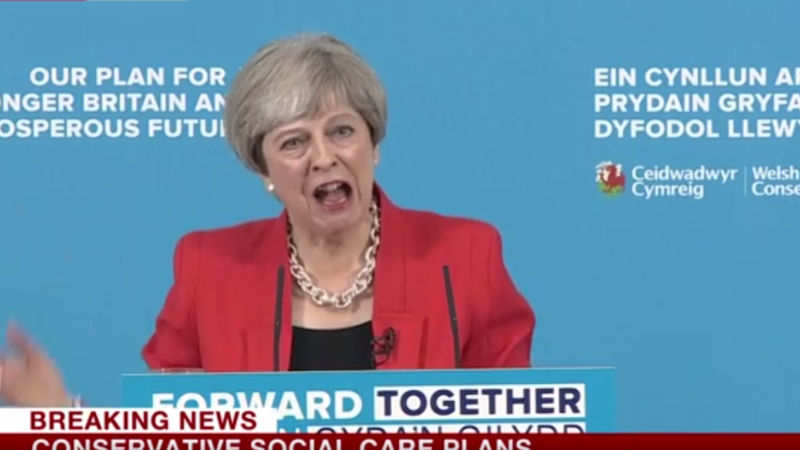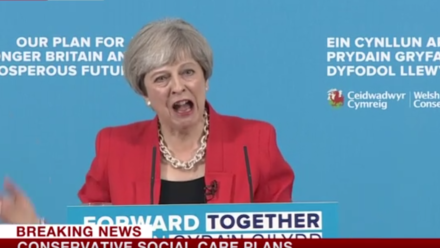

To most voters, the character of the candidates matters more than the policies they offer. Every election in living memory has reinforced this basic political fact.
In the mayoral election in 2012, Londoners didn’t turn out for Ken Livingstone, but not because they disliked his transport policies – most voters thought the policies were great. They just didn’t trust him to deliver them. The Tories, with the help of an Australian lobbyist, had successfully undermined Livingstone’s character. They set up a clear divide, a binary choice for voters: Boris, the loveable buffoon, or Ken, portrayed as a grubby, cronyish tax evader. It didn’t matter that the accusations the Tories threw at Livingstone were false: some of them stuck, and the “dividing line” strategy worked.
The same story played out in the last general election. Labour’s policies were popular and populist: energy price caps, bringing the railways back into public ownership and saving the NHS from privatisation. We went into that election with a lot of great ideas. But again, the Tories and Crosby made it all about character. Cameron the polished and decisive statesman versus Miliband the awkward, geeky North Londoner, who would struggle in a thumb war with Putin, let alone a nuclear standoff. Again, voters chose character over policy.
Next week we will be going into a general election, and third time might be the charm. The Tories already have their dividing line set up. Theresa May, the steely, no-nonsense heir to Thatcher: Jeremy Corbyn, the bumbling, out-of-touch Trotskyite. If we allow the Tories to define their leader and ours, then Labour’s electoral decimation in June is virtually guaranteed.
At this late stage, the answer is not to focus on re-branding Corbyn. The answer is not to spew out a huge list of policies, either. Our manifesto has many great policies, undoubtedly: but if we campaign on policy alone, we’re dead in the water. A promise is useless if people don’t trust you.
Our best chance of winning is this: we need to go for May herself. Her character, not her policies. On the doorstep, we need to highlight her many weaknesses as a leader, and contrast them with Corbyn’s strengths. If character matters more than policy, focusing on our manifesto pledges won’t get us very far if voters still think that May is a competent, strong and driven leader, a Maggie 2.0.
The frustrating thing is, she quite obviously isn’t. Margaret Thatcher was a Tory rock star, the Led Zeppelin of the rabid libertarian right. By contrast, May is a tired shadow of her predecessor: a bad tribute act touring the local pubs, wearing the pearls with none of the passion. It is an insult to political common sense that we have allowed the Tories to define their candidate so positively, when on her own terms she is so self-evidently second-rate. As the opposition, we need to do a lot more to bring her down in the eyes of the public.
The cracks are starting to show. In many recent interviews, May would struggle to pass the Turing test. But, as the opposition, it is our job to prise open her cracks and not allow the media to paper them over. Attack, attack, attack: here are just a few angles that voters need to be told about on the doorstep:
May is untrustworthy. She ruled out an early election repeatedly, when she was planning one all along. She said she wanted to “make Britain work for everyone” and now she is working only for the 52 per cent. She said she wanted to govern for ordinary working people, and has done absolutely nothing to help them.
Contrast this with Corbyn: if he says he’ll do something, he will do it.
May lacks ideology and vision. At least Cameron stood for something, like the “Big Society”, shallow and insipid though it was. What does May stand for? What kind of country is she trying to create? There is no goal, no issue, no flagship policy she is prepared to stake her reputation on. Her only political legacy will be a failed Brexit negotiation.
Contrast Corbyn: given the opportunity, there are hundreds of things he would change about Britain.
May is indecisive. She hesitated on the Brexit strategy for weeks. She paused the Hinkley power plant development, before approving it again. She almost ditched the Northern Powerhouse project, then reinstated it. She approved Amber Rudd’s plans to force companies to publish foreign worker lists, then abandoned it almost immediately. Within the past few days, she has rowed back on social care, the dementia tax, after her poll lead was slashed. May’s government has been u-turn after u-turn. She is a leader who can’t make a firm decision about anything.
Contrast Corbyn: when he has made up his mind on an issue, he does not change it (for decades).
May is a pushover. Her many u-turns suggest she can be bullied when someone powerful doesn’t like what she suggests. She was bullied into retreating by her own party after the national insurance fiasco. She was bullied into retreating by the insurance industry when she tried to ditch Osborne’s personal injury reforms. She was bullied into retreating by the European Commission, and now she follows their staged negotiating procedure, dancing to their tune.
Contrast Corbyn: he has stood fast against Tory provocations, a hostile media and a majority of his own MPs. If there’s someone who cannot be bullied, it’s him.
No doubt there will be those who think campaigning on character rather than policy is beneath a left-wing political party like Labour, committed as we are to the ideals of reasoned debate and mutual respect. And it’s fine to take that view, if you don’t mind losing to less charitable opponents. I prefer to maximise our chances of winning in June.
We need to campaign on character because it is the most important thing to voters in an increasingly presidential election system. And perhaps it should be: in the coming Brexit negotiations, May’s weaknesses will turn out Britain’s weaknesses. When the stakes are this high, we simply can’t afford a leader who is a pushover.




More from LabourList
‘I was wrong on the doorstep in Gorton and Denton. I, and all of us, need to listen properly’
‘Why solidarity with Ukraine still matters’
‘Ukraine is Europe’s frontier – and Labour must stay resolute in its defence’